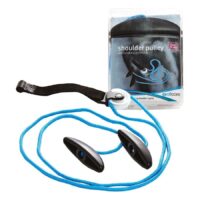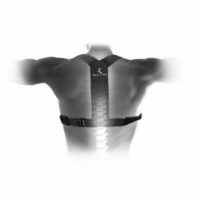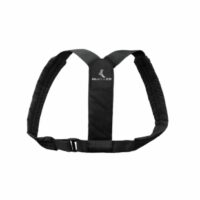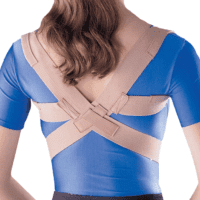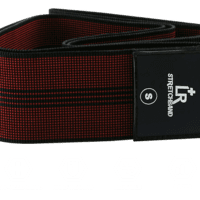Shoulder Instability
Functional Shoulder Instability

What is Functional Shoulder Instability?
Functional Shoulder Instability occurs when the shoulder joint moves excessively, causing discomfort and a feeling of instability. This condition ranges from mild, unidirectional instability to multidirectional instability and recurrent shoulder dislocations.
Left untreated, it increases the risk of various injuries, including shoulder impingement, shoulder bursitis, rotator cuff tears, labral tears, and shoulder dislocations.
Causes of Functional Shoulder Instability
Functional shoulder instability results from neuromuscular imbalances rather than structural defects. It often stems from repetitive strain, muscular weakness, or insufficient neuromuscular control.
Common causes include:
- Overuse injuries
- Poor posture
- Muscle imbalances
- Inadequate proprioception
These factors affect the dynamic control of the shoulder joint. Moreover, sports involving repetitive overhead motions, such as swimming, tennis, throwing sports and volleyball, may contribute to the development of functional shoulder instability.
Symptoms
Symptoms of functional shoulder instability differ from those of structural instability. Patients frequently experience a sensation of the shoulder “giving way” or feeling unstable during specific movements, rather than full dislocations or subluxations. Recurrent episodes of pain, weakness, and a feeling of “looseness” during activities are also common complaints.
Diagnosis
Your physiotherapist will conduct a comprehensive assessment to diagnose functional shoulder instability. This includes taking a detailed history and performing a thorough physical examination, assessing range of motion, muscle strength, and stability.
While imaging like ultrasounds or MRI can identify underlying or secondary issues such as muscle tears or bony abnormalities, it cannot reveal functional instability.
Treatment Options
Effective management of functional shoulder instability typically involves a multifaceted approach tailored to your needs. Physiotherapy plays a central role in strengthening the muscles around the shoulder joint and improving proprioception.
These exercises aim to enhance dynamic stability and correct muscular imbalances. Additionally, proprioceptive training, shoulder bracing, and activity modification strategies can help reduce symptoms and prevent further instability episodes.
Addressing contributing factors, such as poor posture and overuse injuries, is essential in preventing the recurrence of functional shoulder instability. Lifestyle modifications, including ergonomic adjustments and proper warm-up and cool-down routines, can significantly reduce symptoms.
What to Expect with Functional Shoulder Instability?
Rehabilitation time depends on your level of dysfunction. Those with mild, unidirectional instability and no prior history of shoulder problems recover more quickly than those with multidirectional instability, multiple dislocations, and concurrent shoulder blade dysfunction.
Improving shoulder strength and control is crucial for recovery. Your compliance with the exercise program significantly impacts your recovery time.
Will You Need Surgery?
Many individuals with functional shoulder instability respond well to conservative physiotherapy treatment. In severe cases, where conservative measures prove insufficient, surgical intervention may be considered as a last resort to restore stability and function to the shoulder joint. It may also be considered in cases with a secondary anatomical problem, such as a labral tear, significant rotator cuff tear, or Hill-Sachs lesion.
For more information, please do not hesitate to ask your shoulder physiotherapist.
Rochedale - Call 38410277
Book Online: RochedaleSalisbury - Call 32751044
Book Online: SalisburySandgate - Call 32691122
Book Online: SandgateRelated Articles
- Effective Shoulder Impingement Treatment And Advice: Offers insights into shoulder impingement syndrome, a condition closely related to shoulder instability, where tendons are pinched during arm movements.
- Rotator Cuff Tear – Causes, Symptoms, Treatment: Discusses rotator cuff tears, which can be a consequence of or a contributing factor to shoulder instability.
- Strengthen Scapular Muscles: Enhance Your Shoulder Health: Highlights the importance of scapular stabilisation in improving shoulder health and preventing injuries, a key aspect of managing functional shoulder instability.
- Biceps Tendinopathy: Causes, Symptoms, And Treatments: Explores biceps tendinopathy, which can occur alongside shoulder instability due to similar risk factors like overuse and repetitive strain.
- Frozen Shoulder (Adhesive Capsulitis): Provides information on adhesive capsulitis or frozen shoulder, a condition that can emerge due to prolonged shoulder instability or immobility.
- Shoulder Pain: Offers a broad overview of common shoulder pain causes, including conditions related to shoulder instability.









